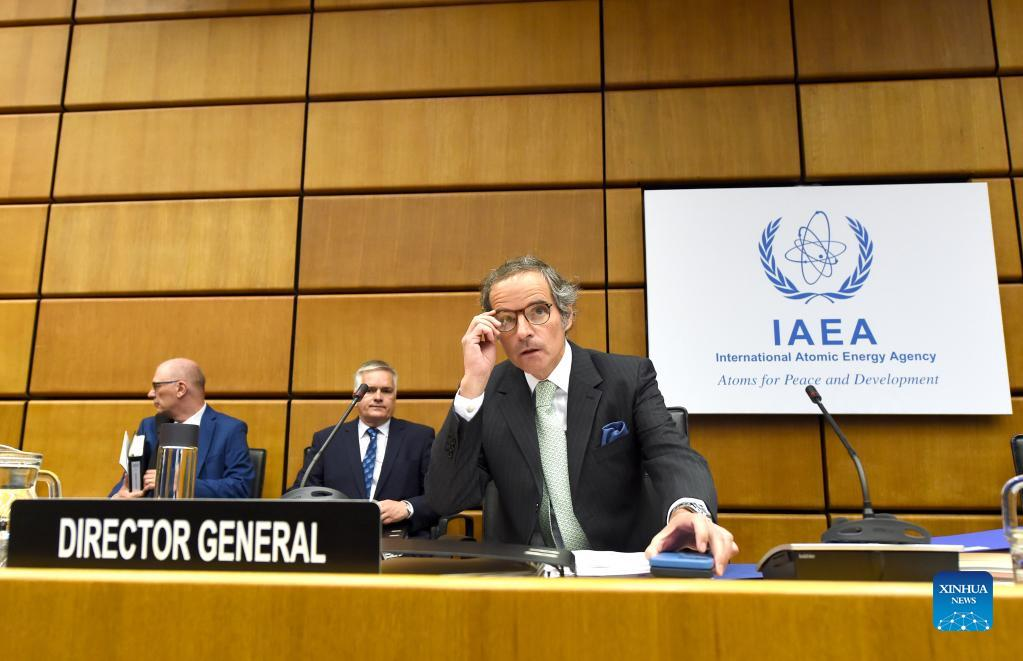By Daryl Guppy
Despite a strong Australian denial, it's clear that the purchase of nuclear submarines under the AUKUS agreement takes Australia down a nuclear path that is at odds with its obligations under the Treaty on the Non-Proliferation of Nuclear Weapons (NPT). The AUKUS partners attempt to legitimize this nuclear path was defeated at the General Conference of the International Atomic Energy Agency (IAEA) meeting last week.
The AUKUS partners proposed an amendment to an IAEA safeguards resolution in the context of NPT, but later withdrew it after it was clear the resolution would be defeated. This is most likely a symbolic defeat since the UK and U.S. have a long history of ignoring UN resolutions when it suits their purposes. Australia has also stood reluctant to comply with some UN resolutions.
There are four important observations emerging from this decision. The first observation is the strength of opposition to Australia's acquisition of nuclear submarines.
The open concerns expressed by Indonesia and Malaysia, and echoed more quietly by Singapore and others, reflect a genuine and independent analysis of the AUKUS announcement. These deep reservations about the proposed acquisition may be in agreement with China's concerns but it is a mistake to assume that China has coordinated this opposition.
This independent consensus shows the growing political independence within the ASEAN region. No longer can it be assumed that these states will automatically follow the U.S. position on issues that impact the region directly. ASEAN can effectively act to protect and promote its own strategic interests, which are no longer an automatic extension of U.S. foreign policy.
The second observation relates to the erosion of trust that has taken place over decades. To put it most clearly, many nations no longer trust the assurances given by the United States in particular, and by major Western nations more generally.
The proposed amendment to IAEA safeguards was really based on the idea that the IAEA could "trust" the assurances given by the AUKUS partners just because they were Western nations. This reveals an underlying arrogance that Western nations are trustworthy, while other nations are not. The Western media coverage of the IAEA decision would suggest that opposition to the resolution came from nations that could not be trusted.

Rafael Grossi (R), director general of the IAEA, attends a meeting of the IAEA Board of Governors in Vienna, Austria, June 6, 2022. [Photo/Xinhua]
This rejection of trust is ironic because it was one of the "trusted" Western powers, French President Emmanuel Macron, who said of former Australian Prime Minister Scott Morrison that "I don't think, I know" when asked if he thought Morrison lied to him over the cancellation of a submarine contract.
Former U.S. President Ronald Reagan said "trust but verify." The events at the IAEA meeting have shown this has now become "verify and then trust." It's an early sign of a significant change to the way the institutions of the global rules-based order are operating. They are no longer in thrall to the United States.
The third observation is directly related to this newly-found independence. The AUKUS partners are reluctant to accept that other nations can make decisions for themselves; so they conclude that they must have been influenced, persuaded or threatened by China.
Of course major powers usually deploy a range of measures to lobby UN decisions. Australia spent millions of dollars in a successful effort to lobby UNESCO to ignore the World Heritage Committee 2021 recommendation to place the Great Barrier Reef on the "in danger" list. The United States Congress has allocated more than $300 million for media-focused initiatives against China.
These are all acts of influence, but apparently only the Western powers are permitted to do this. Accustomed to having this area largely to themselves, AUKUS partners are perturbed by the application of the same tools of influence by others. It is no longer an uneven playing field.
The final observation is that this is a test of genuine commitment to the global rules-based order. The major powers in the UN have a history of simply ignoring UN decisions that they do not like. The UK and U.S. continue to ignore UN directives in relation to the disputed Chagos Islands.
The AUKUS partners' withdrawal of their proposed amendment demonstrates that the AUKUS partners will continue to ignore the IAEA non-proliferation obligations, even though at the same time they will be vociferous in their calls for China to abide by the rules of the global rules-based order.
At the headline level, the AUKUS countries have been unsuccessful in passing their proposed IAEA amendment but the implication of this failure reflects far deeper changes in the structures of global decision making.
Daryl Guppy is an international financial technical analysis expert. He has provided a weekly Shanghai Index analysis for media for the Chinese mainland for more than a decade. Guppy appears regularly on CNBC Asia and is known as "The Chart Man." He is a national board member of the Australia China Business Council.

 中文
中文



